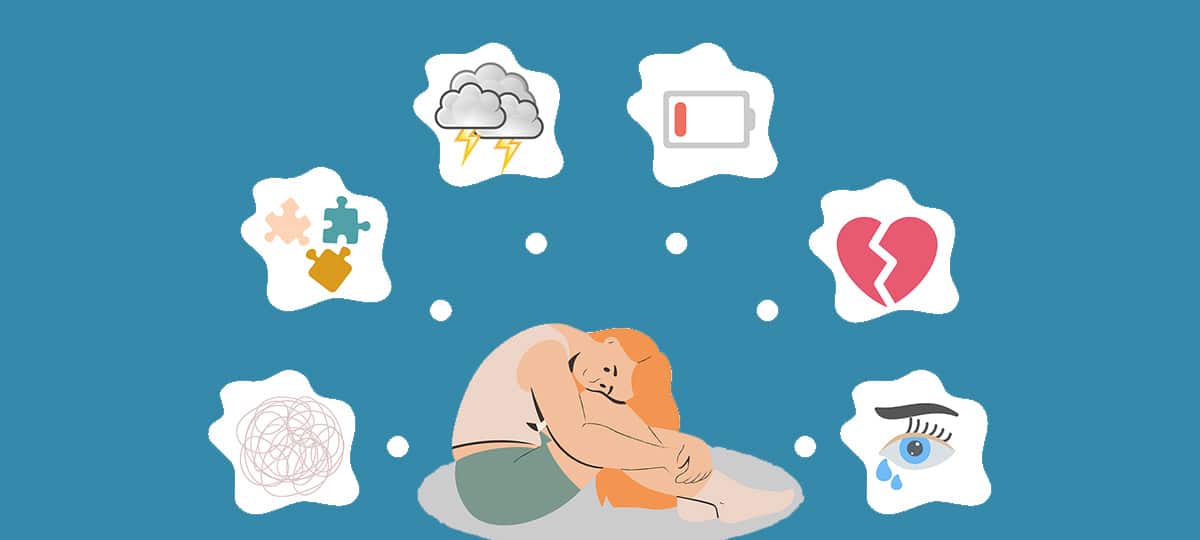First things first:
- Psychological counseling at your university is free and easily accessible. It offers confidential support for exam anxiety, academic pressure, and personal issues.
- Your information is protected, and you don’t need to worry about negative consequences—this includes future plans for public service or government employment.
- Counseling centers collaborate with a network of crisis services and licensed therapists to connect you with additional help if needed.
- Take advantage of these services early to reduce stress and successfully navigate your college experience.
College is an exciting yet challenging phase of life. This is where psychological counseling comes in: tailored specifically to the student experience, it provides support when the pressure becomes overwhelming. Data from health insurance providers reveals a significant rise in mental health challenges among students. In 2023, a Forsa study showed that an increasing number of students reported struggling with mental health issues. University counseling centers are now more important than ever, offering both preventive and immediate support to help you navigate these challenges.
Mental Health Challenges During College
College life brings many challenges that can strain your mental health. Academic pressure, difficulties with focus and learning, test anxiety, self-doubt, and depressive moods are common experiences. The pressure to finish within the standard study period and fears about future job prospects add further stress for many students.
Perhaps you recognize yourself in these scenarios: Your thoughts revolve solely around your studies, making it hard to concentrate on anything else. Motivation problems, writer’s block, or personal issues weigh you down even more. At some point, you may find yourself skipping lectures or avoiding campus altogether. Does the thought of facing people make you anxious? Are you skipping class because you think you can manage without it—or is something deeper going on?
It’s important to take these warning signs seriously. Intense academic pressure can have serious consequences, so seeking help early is key. If just heading to campus makes you feel uneasy or if you experience physical symptoms like headaches or nausea, don’t hesitate to reach out for support. It’s also okay to question whether your chosen field of study is the right fit for you. Instead of struggling through multiple semesters only to realize you’re unhappy, consider seeking guidance early on. Unfortunately, only about 30% of students facing difficulties take advantage of psychological counseling services. This reluctance is often due to the perception—fueled by academic competition and a results-driven culture—that seeking help is a sign of weakness. Universities sometimes convey the impression that personal struggles should remain private. However, by seeking support, you’re setting yourself up for success without jeopardizing your health. Taking care of your mental well-being ensures you can navigate your college journey with resilience and confidence.
Services Offered by Psychological Counseling
In Germany, 45 student services organizations provide free psychological counseling for students. Universities prioritize making these services easily accessible, with minimal wait times and no bureaucratic barriers. Every enrolled student is eligible to use these resources. Most universities offer short-term counseling, typically comprising five to ten sessions. These sessions provide support for personal or academic challenges, helping you identify your strengths and manage stress more effectively. The goal isn’t just to address immediate issues but also to build skills that will benefit you in the future. Counseling services also provide stabilization during crises and can refer you to specialized medical or psychotherapeutic facilities if needed. Before your session, think about the topics you’d like to discuss. Use the counseling to regain clarity and structure in your academic life, equipping yourself to navigate challenges with confidence.
Specific Challenges and Misconceptions
Many students hesitate to seek support because they fear negative consequences. This is especially true for education majors, who often worry that therapy could jeopardize their future as civil servants. However, this is a misconception. Counseling services are confidential, and your data is not shared with health insurance providers. In fact, therapy can play a crucial role in maintaining your long-term ability to work. Neglecting your mental health poses a far greater risk.
International students and queer individuals often face additional challenges, such as cultural adjustment or discrimination. Universities must continue to expand their counseling services to ensure that all students have access to the support they need.
Long-Term Impact and Support Network
University psychological counseling services are part of a broad support network. They collaborate closely with regional crisis centers, addiction counseling services, and licensed therapists to provide you with the best possible help. This partnership ensures that you receive appropriate support, even if your challenges extend beyond what university counseling can address. Many students begin their studies already carrying mental health burdens. Counseling helps you confront and address these issues, so they no longer hold you back, enabling you to move forward with greater confidence and focus.
While counseling is not a substitute for long-term therapy, it can help you take that crucial first step and gain clarity. Your well-being should always be a top priority. In many cases, simply gaining an objective perspective, having a few conversations, and receiving new insights can make a significant difference. The most important thing is to seek help when you feel you need it. Taking advantage of these services early can set you on the path to better mental health and a more balanced academic life.
If everything feels overwhelming, don’t hesitate to turn to your university’s counseling services. Seeking help is not a sign of weakness—it shows that you take responsibility for yourself and your well-being. Normalizing psychological counseling is an important step toward making the college experience more positive for everyone. However, there is still progress to be made: more training for university staff and expanded services for students with unique challenges are essential to ensure no one is left behind.
Ultimately, university counseling can help you reduce pressure and successfully navigate your academic journey. It’s there to support you and help you achieve your goals—without any cost to you. Take the first step—you’re worth it!
Sources:
- https://www.forschung-und-lehre.de/zeitfragen/wie-belastet-sind-studierende-6268
- https://www.unicum.de/wissenswertes/psychosoziale-beratung-hochschule
- https://www.studierendenwerke.de/themen/beratungsangebote/psychologische-beratung/netzwerk-psychologische-beratung
- https://www.studierendenwerke.de/themen/beratungsangebote/psychologische-beratung/psychologische-beratungsstellen
- https://www.studierendenwerke.de/themen/beratungsangebote/psychologische-beratung
Frequently Asked Questions
How Does Psychological Counseling Help During College?
Psychological counseling provides support for exam anxiety, academic pressure, and personal challenges. It helps you reduce stress and strengthen your mental health, ensuring you’re better equipped to handle the demands of college life.
What Mental Health Challenges Do Students Often Face?
Students frequently struggle with academic pressure, test anxiety, concentration issues, and self-doubt. During periods of high stress, such as exam seasons, these challenges can intensify, sometimes leading to depressive moods or even physical symptoms.
Does Psychological Counseling Endanger My Eligibility for Civil Service?
No, psychological counseling is confidential, and your information is not shared with third parties. Therapy or counseling does not jeopardize your civil service eligibility or career prospects—in fact, it can help safeguard your long-term ability to perform and thrive in your profession.
How Does Psychological Counseling at University Work?
Most universities offer short-term counseling sessions, typically consisting of 5 to 10 appointments. These sessions provide a space to discuss your challenges, develop solutions, and learn stress management techniques. Counseling is free of charge and easily accessible, with minimal wait times.
How Does Psychological Counseling at University Work?
Psychological counselling works closely with regional crisis services, addiction counselling and psychotherapists together. If your problems go beyond the possibilities of the university counseling, you will be referred to appropriate offices.
Do you like our magazine? Then sign up for our GRIN newsletter now!









